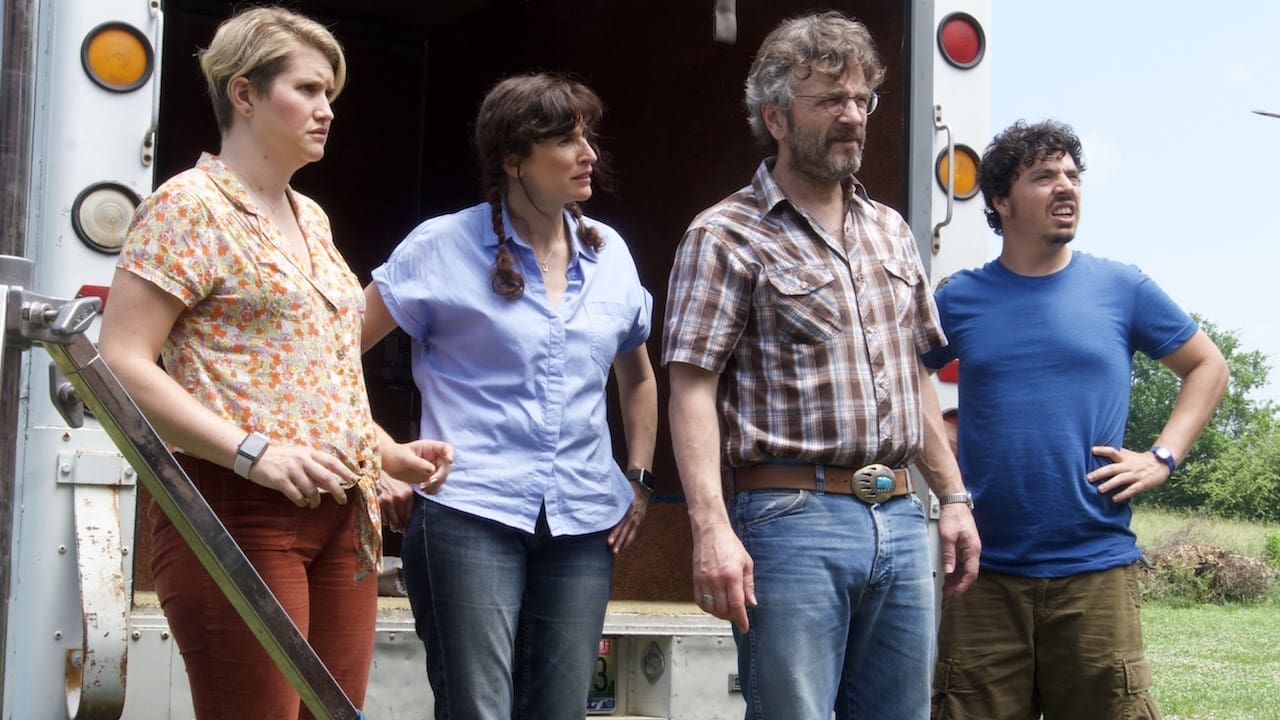
After catching a screening at SXSW of Lynn Shelton’s latest improv comedy, I left oddly satisfied but still felt like there was something missing. It never reached the peak that its all-star ensemble felt capable of. There were plenty of high moments, but it ultimately seemed empty, or that each spike was just another piece to move on to the next scene.
Three months later, Sword of Trust has stuck with me somehow, proving that any doubts that were originally had right after viewing were misplaced. While it’s by all accounts a comedy, and with a cast of renowned comedic talent ranging from Marc Maron, Michaela Watkins, Jillian Bell and the widely underrated Dan Bakkedahl in a bit role, it’s the dramatic weight and turns that have the most legs. The laughs are a great guide to follow along, but it aims to cut deeper than some witty, improvised lines.
Starting in the small pawn ship owned by Mel (Maron) with help from his slow-witted but lovable employee Nathaniel (Jon Bass), co-writers Shelton and Mike O’Brien immediately set up a sense of place and community. That’s almost immediately disrupted when Mary (Watkins) and Cynthia (Bell) bring in a piece of U.S. history passed down by Cynthia’s grandfather
What follows is a road trip leading them out of Alabama to sell what could be the missing piece to the nation’s history and undo centuries of progress. The less that’s known, the better.
Suddenly, the stakes drive deeper than just some personal issues Mel has with his down on her luck ex played by Shelton, and his pawn shop’s struggles could be solved by getting a cut of the profits from helping the couple sell their family history in search of starting something new.
Sword of Trust seems most occupied with the small, intimate moments—especially with Mel. And anyone that listen’s to the WTF podcast would likely agree Mel is just an extension of Maron, making him an infinitely interesting character with some deep introspection. It’s a wildly smart casting choice elevated all the more by the lines being largely improvised. And considering the guitar riff transitions were also provided by Maron, it feels all the more like a spotlight for him and is entirely more lived-in. It’s his show and everyone else is just living in the moment.
Through the intimate moments along the way to the destination, it’s the larger picture that packs the biggest punch. Suddenly, all the issues that are rounded out for the characters by the end are dwarfed and make what could be an otherwise satisfying ending feel contrived in comparison.
Still, because of the cast that centers the whole production, everything works in spades, largely by letting the actors be part of the creative process in full force. It just might take an unexpected direction to get there.

